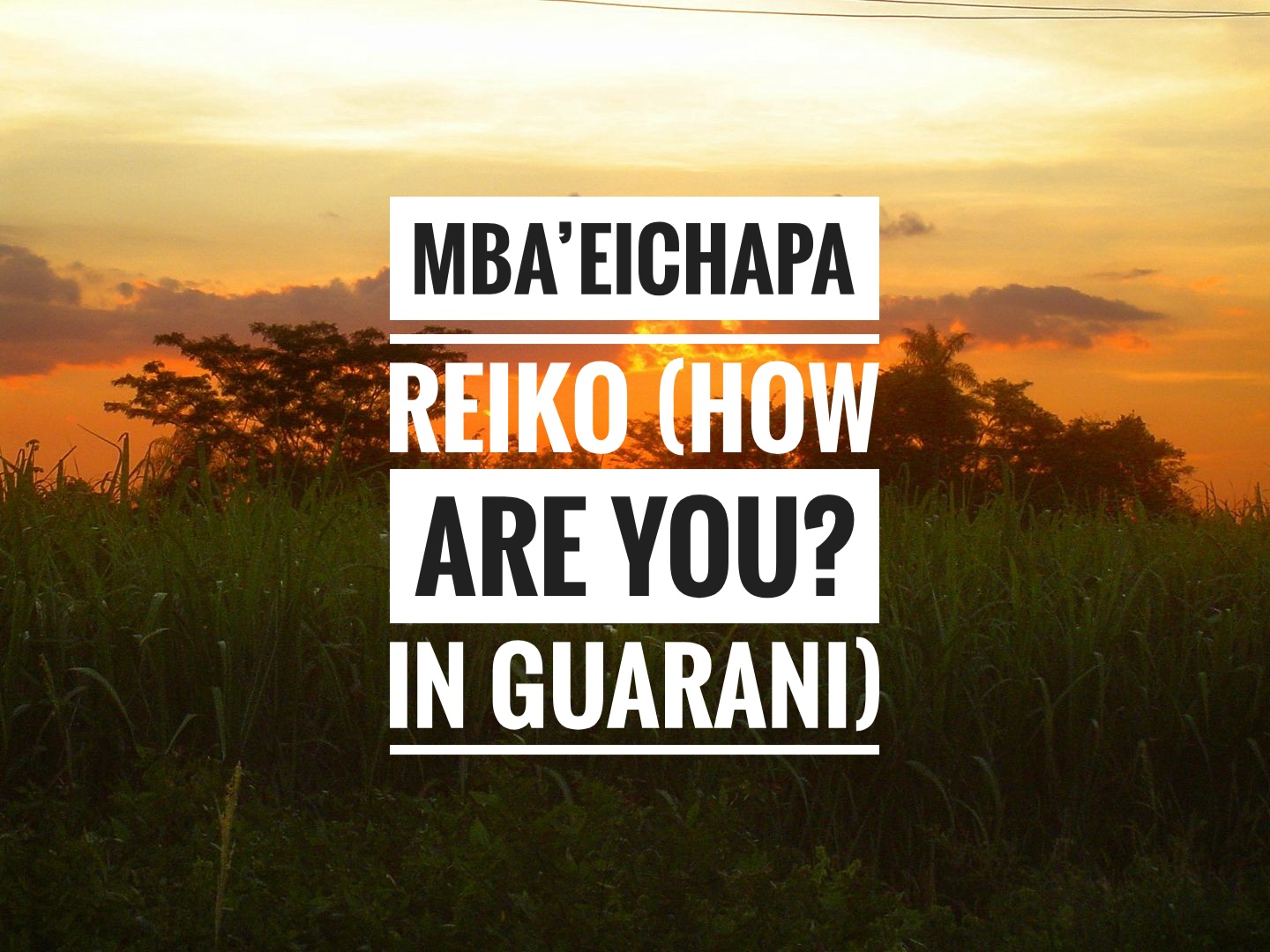
Mba’eichapa reiko? Do you know what that means? Read the Treasures of Traveling blog post to find out!

Peace Corps Training
Mba’eichapa reiko? Che aikohina ipora! That means, “How are you doing? I’m doing great”. I am still in the middle of my three month training for the Peace Corps in Paraguay and I am slowly learning Guarani. It is a very difficult language to learn, but the instructors at Peace Corps Paraguay training facility are amazing! In any country that the Peace Corps operates in, they hold a three month in country training that includes learning the language as well as having technical training for the things you will be focusing on while there. We have currently been focusing most of our time to learning about general public health here in Paraguay, from educating individuals about parasites and HIV/AIDS to water sanitation and dental hygiene. We learn ways of teaching to both adults and children. We are also learning how to build sanitary latrines and fagons (brick ovens) because these are some of the things we will most likely be doing when we reach our site in May! We are also learning about community development, globalization, culture exchange, just to name a few.

Daily Life in Peace Corps Paraguay
My life here has been about the same everyday. Get up, go to class, have lunch, go back to class, play soccer, have dinner, go to bed and get up and do it all again the next day. If my training is in Guarambare, I have to get up by 5:30 am so I can make it there by 8 am. The other days when my training is in Santo Domingo, the village I’m currently living in, I have to get up at 6:45 am. Some mornings, I get to milk the cows with my host mom, which is so difficult for me. My host Mom makes it look so easy! She can fill an entire bucket in the time it takes me to fill just a quarter of the bucket! The language class is tough because we split our time between learning Spanish and Guarani. We have to learn both in order to communicate as everyone in Paraguay is bilingual. Since we will be placed in rural areas as our job is a Rural Health and Sanitation Educator, we must learn Guarani even though in urban areas, Spanish is mostly the language that is spoken. They also speak Jopara by mixing the two languages together so I guess you can say they speak Spanish, Guarani and Jopara! Jopara would be comparable to what we consider Spanglish between English and Spanish except they use Guarani conjugations with Spanish verbs so it really is a mixture of the two languages. Guarani has been hard to learn because it is not related or similar to Spanish in any way. It’s the indigenous language of the Guarani Indians.

Observations of Paraguay
I love playing soccer with the kids in town in the afternoons. It’s always great exercise especially in the hot summer sun. Even though it’s March, it is summer here since Paraguay is in the Southern Hemisphere. Paraguayans view dogs completely differently then we do in the United States. Dogs are seen as dirty and an animal that will guard your house and allow you to know that someone is approaching your house. Therefore, if a dog comes around them to be petted, in general, they will hit or kick the dog to get them to go away. It was really hard to get used to because they don’t treat them anything like how we treat

our dogs in the states. Dogs squeal like pigs when they get hit and pigs make the most horrific noise when being slaughtered. Paraguayans are big into shoes here! They have the up most respect for you if your shoes are clean and it is quite a challenge to keep them that way here because I have to walk on bright red dirt roads every day so after a short walk, the my shoes are covered in red dust. I brought white socks with me, but I will be buying some black socks because it’s just too hard to keep the white socks clean when walking on dirt roads everyday!
Pin me!
Like this article? Then Pin me so other travelers can find it!

